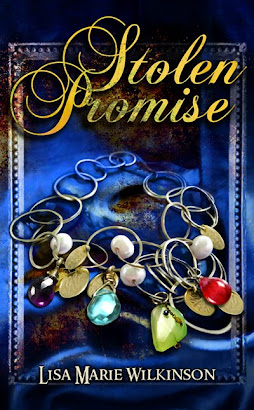There has been such a fuss over the immense success of the trilogy of erotic novels beginning with “Fifty Shades of Grey,” that my curiosity was piqued and I downloaded the trio to my Kindle so that I could decide its merits—or lack thereof—for myself. To date, I’ve read the first novel, “Fifty Shades of Grey,” and I’ve nearly finished the second book, “Fifty Shades Darker.”
I’m not going to jump on the pro or con bandwagon or delve into any deep philosophical rumination with regard to this work. The whole “domination/submission” thing has been discussed ad infinitum (some might say ad nauseum) on Amazon, Goodreads, and even on the romance website “All About Romance,” which is considered the tour guide for romance fans looking for the next trendy property to read. Opinions concerning this work of fiction (which features aspects of the alternative BDSM lifestyle) are widespread and I can’t really add anything to the critical storm that hasn’t already been articulated in print.
Perhaps I view things too simplistically, but “Fifty Shades” seems like nothing more than a sexually amped-up Cinderella story, ala “Pretty Woman,” which certainly divided audiences in its heyday with the implicit question, “Does a prostitute deserve a happy ending?” In the Richard Gere/Julia Roberts film, Gere was impossibly handsome and obscenely rich. He had certain, ah, expectations of the heroine, and he wasn’t always nice. Setting the kink factor aside, the Christian Grey character reminds me of Gere’s character in Pretty Woman.
I think the core at the success of “Fifty” is the fascination those of us who aren’t wealthy have with those who are. If you re-cast the uber-wealthy, phenomenally gorgeous Christian Grey as a blue-collar worker of average means, many of the scenes in the book(s) suddenly became unlikely, if not impossible.
Pretend for a moment that Christian Grey teaches engine repair at the local diesel college:
• Blue collar Christian Grey wouldn’t have been an interesting interview subject for a college newspaper in the first place, under most circumstances
• Blue collar Christian Grey wouldn’t be able to fly the heroine to his lair using his very own helicopter
• Blue collar Christian Grey probably has a two-room apartment somewhere, and wouldn’t have any spare room to devote to a “Red Room of Pain,” or the means to purchase all the kinky equipment contained within said room
• Blue collar Christian Grey wouldn’t be able to gift our heroine with a new red Audi as a graduation gift, (unless a subsequent chapter in the book details his arrest for grand theft auto)
• Blue collar Christian Grey wouldn’t be able to have a corporate server wiped clean of e-mails shared with the heroine, or have the connections and power needed to stalk our heroine so effectively
• Blue collar Christian Grey wouldn’t be able to purchase the publishing firm where the heroine works just to have more control over the heroine’s lecherous boss
• Blue collar Christian Grey might be able to take our heroine gliding, but a trip to the local zoo would be more likely on his budget
• Blue collar Christian Grey wouldn’t be able to provide our heroine with a closet full of expensive designer clothing, nor would he have a “Man Friday” (Taylor) available to shop for undergarments for her at a moment’s notice
• Blue collar Christian Grey wouldn’t be able to take our heroine shopping for a new Saab after a psychotic former girlfriend slashed the tires on the Audi and covered it in white paint
• Blue collar Christian Grey wouldn’t have a fortune to drop at a charity event to outbid his competitor for a dance with our heroine
• Blue collar Christian Grey might be able to book a room at the local Super 8 motel for a rendezvous with our heroine, but it’s doubtful he’s going to be “christening” the bed of his 50 foot boat with her
Our auto diesel college teacher version of Christian Grey could potentially have an older “Mrs. Robinson” in his past, and may have any number of ex-girlfriends with mental problems, but he wouldn’t have the means to hire surveillance and body guards to protect his current paramour from said former lovers with issues.
Christian Grey in Fifty Shades tells the heroine he makes $100,000 per hour (which I thought was amazing that he manages to be so productive when he seems to spend most of his time e-mailing, stalking, obsessing over, or nailing our heroine. Plus, what about the thirteen submissives who came before our heroine? Certainly they must have required significant time and attention, not to mention all the time it takes to draft and revise those non-disclosure agreements outlining Grey’s extra-curricular activities). The auto diesel college teacher version of Christian Grey would make, ah, considerably less, and his boss would be making sure that Christian put in his forty hours each week, leaving Christian with much less free time for stalking.
In my view, the plot of Fifty Shades depends more upon the wealth of the Grey character than it does his unusual sexual proclivities. While the book contains explicit sex scenes, most of the content is fairly average by erotica standards. Fifty Shades of Grey is for the most part a variation on the timeless fairy tale of an average woman of modest means allowed to experience a world of wealth and privilege.
Laters, baby.

Lisa Marie







